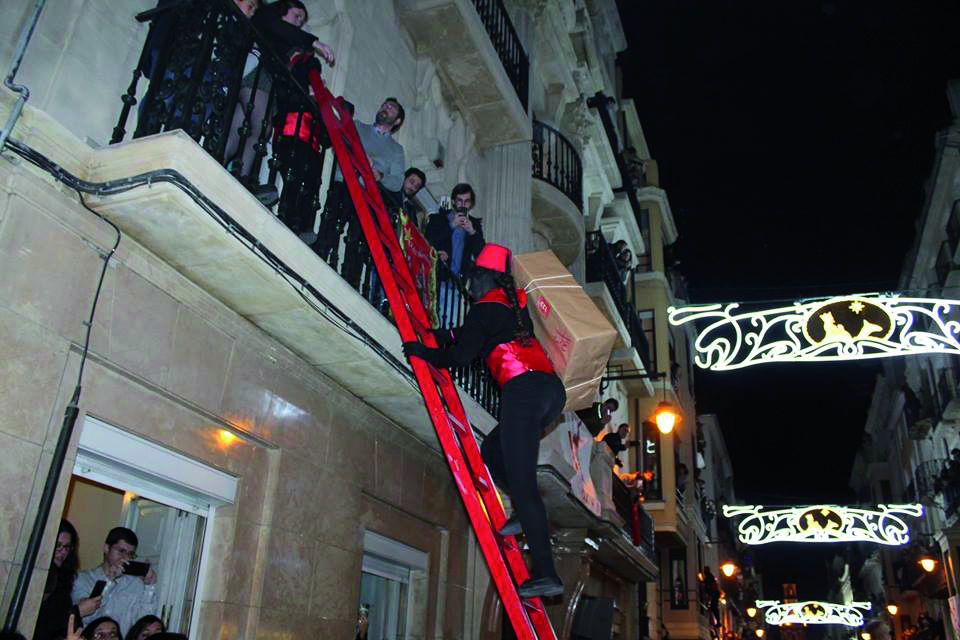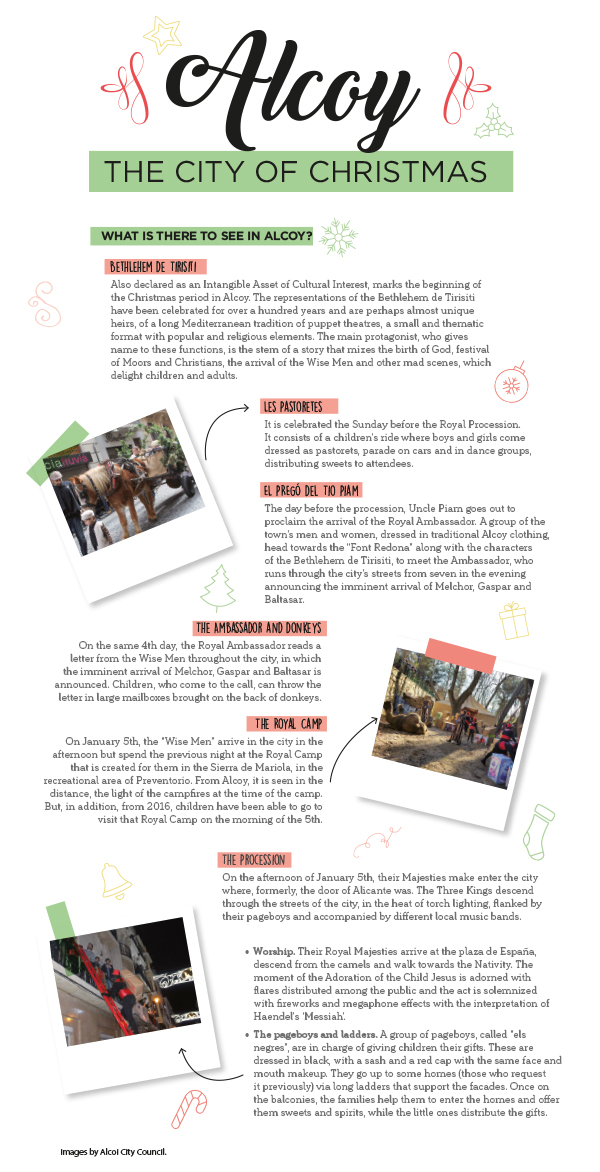The Cavalcade of Alcoy and Tirisiti: what to see in Alcoy at Christmas
Discover how to have an authentic Christmas. Visit this city in Alicante and discover why it is known as the city of Christmas. Meet the Bethlehem de Tirisiti, the lights, markets and its unique Three Kings Parade.
TRAVELLING WITH TASTE
Share

The Three Kings Parade is, without a doubt, the most highly anticipated moment of the year for children, but if it is also the oldest in Spain and possibly the world, it becomes a show spectacle of unparalleled magic.
The festival was declared, from 2001, an Intangible Asset of Cultural Interest and is visited every year by thousands of people. In addition, this year celebrates its 154th anniversary, as it has been celebrated continuously since 1866.
An act in which more than a thousand men and women from Alcoy participate: pageboys, torches, servers, escorts, decorated cars and floats, local music bands and dance groups. Everyone knows their role and focuses their effort into bringing passion and brightness to the visit of Melchor, Gaspar and Baltasar.
What is there to see in Alcoy?:
• Bethlehem de Tirisiti, also declared as an Intangible Asset of Cultural Interest, marks the beginning of the Christmas period in Alcoy. The representations of the Bethlehem de Tirisiti have been celebrated for over a hundred years and are perhaps almost unique heirs, of a long Mediterranean tradition of puppet theatres, a small and thematic format with popular and religious elements. The main protagonist, who gives name to these functions, is the stem of a story that mixes the birth of God, festival of Moors and Christians, the arrival of the Wise Men and other mad scenes, which delight children and adults.
• Les pastoretes. It is celebrated the Sunday before the Royal Procession. It consists of a children's ride where boys and girls come dressed as pastorets, parade on cars and in dance groups, distributing sweets to attendees.
• Pregó del Tio Piam. The day before the procession, Uncle Piam goes out to proclaim the arrival of the Royal Ambassador. A group of the town’s men and women, dressed in traditional Alcoy clothing, head towards the "Font Redona" along with the characters of the Bethlehem de Tirisiti, to meet the Ambassador, who runs through the city’s streets from seven in the evening announcing the imminent arrival of Melchor, Gaspar and Baltasar.
• The Ambassador and donkeys. On the same 4th day, the Royal Ambassador reads a letter from the Wise Men throughout the city, in which the imminent arrival of Melchor, Gaspar and Baltasar is announced. Children, who come to the call, can throw the letter in large mailboxes brought on the back of donkeys.sobre sus lomos.
• The Royal Camp. On January 5th, the "Wise Men" arrive in the city in the afternoon but spend the previous night at the Royal Camp that is created for them in the Sierra de Mariola, in the recreational area of Preventorio. From Alcoy, it is seen in the distance, the light of the campfires at the time of the camp. But, in addition, from 2016, children have been able to go to visit that Royal Camp on the morning of the 5th.
• The Procession. On the afternoon of January 5th, their Majesties make enter the city where, formerly, the door of Alicante was. The Three Kings descend through the streets of the city, in the heat of torch lighting, flanked by their pageboys and accompanied by different local music bands
• Worship. Their Royal Majesties arrive at the plaza de España, descend from the camels and walk towards the Nativity. The moment of the Adoration of the Child Jesus is adorned with flares distributed among the public and the act is solemnized with fireworks and megaphone effects with the interpretation of Haendel's 'Messiah’.
• The pageboys and ladders. A group of pageboys, called "els negres", are in charge of giving children their gifts. These are dressed in black, with a sash and a red cap with the same face and mouth makeup. They go up to some homes (those who request it previously) via long ladders that support the facades. Once on the balconies, the families help them to enter the homes and offer them sweets and spirits, while the little ones distribute the gifts.







